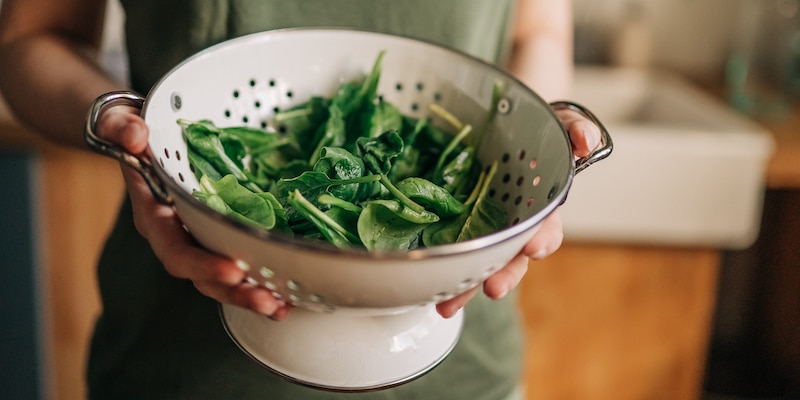by Melissa Chichester
However, some nutrients are easier to get than others. If you love Vitamin C, you’ll find it in many foods from leafy greens to your favorite juicy fruit. And if you regularly eat Brazil nuts, you’re probably getting enough selenium.
The B-complex is a group of water-soluble compounds obtained through the diet that play many roles in various metabolic processes at the cellular level. Here’s how you can increase your intake of specific B vitamins through your diet.
Niacin is a B vitamin (B3) that is part of a coenzyme needed for energy metabolism.* Niacin helps maintain healthy functions of the nervous system and skin.*
Beef liver is one of the richest sources of niacin. However, if organ meats aren’t for you, there’s good news. You can also find high to moderate amounts of niacin in these foods:
You can also find niacin in some enriched foods, such as bread and breakfast cereal.
Pantothenic acid – or Vitamin B5 – functions as part of a key coenzyme that is necessary for the release of energy in cells.* As a component of coenzyme A, it helps convert fats, carbohydrates, and proteins into cellular energy.* Although it has a big job, the good news is you can find pantothenic acid in almost every type of food.
Fortified breakfast cereals and beef liver both contain high amounts of pantothenic acid. In addition, other good sources include shiitake mushrooms, sunflower seeds, chicken, and tuna.

Vitamin B7 is commonly known as biotin, and it helps support skin, hair, and nail health so you can look and feel your best.* Biotin also helps assist in protein and fat metabolism for cellular energy use.*
By now this won’t surprise you – beef liver is one of the best sources of biotin. Other foods also naturally contain biotin, including eggs, salmon, and pork. Plant-based sources include almonds, spinach, sunflower seeds, and sweet potatoes.
Folate (Vitamin B9) is involved in DNA and RNA synthesis and plays a significant role in the formation of new cells.* It is also a critical nutrient for pregnant women, as adequate folate in healthful diets may reduce a woman’s risk of having a child with a brain or spinal cord birth defect.
Once again, beef liver is a top source of folate. Other dietary sources of folate include:
>>5 Questions and Answers About Prenatal Vitamins
Vitamin B-12 is one of the most buzzed-about nutrients in the B-complex group. It supports energy metabolism by working with enzymes involved in breaking down nutrients, such as amino acids.*
Unfortunately, Vitamin B-12 is not found in significant amounts in vegetables. Once again, beef liver reigns as the best source. Other sources of B-12 include clams, tuna, salmon, milk, and yogurt. Vegetarian sources of Vitamin B-12 include nutritional yeast, fortified bread and cereal, strawberries, spinach, and tempeh.
>>Shop all Vitamin B-12 supplements
Eating a well-rounded diet is the most effective way to increase your intake of B vitamins. When diet is not enough, supplements can be a helpful way to bridge the gap. Always talk to your doctor before using supplements.